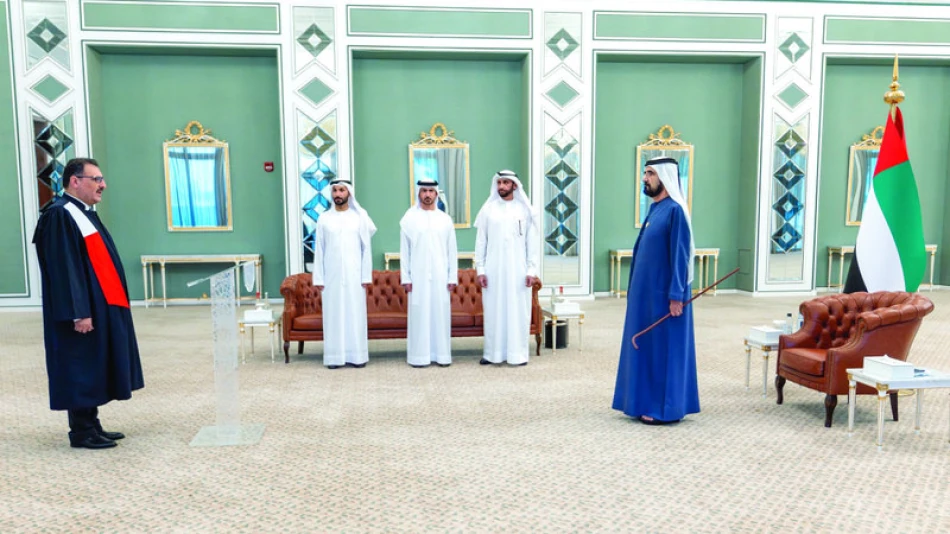
Sheikh Mohammed Underscores Impartial Judiciary as Cornerstone of Societal Stability and Cohesion
Dubai Reinforces Judicial Independence with 35 New Judges as Business Hub Expands
Dubai has sworn in 35 new judges in a ceremony overseen by Sheikh Mohammed bin Rashid Al Maktoum, underscoring the emirate's commitment to strengthening its judicial infrastructure as it positions itself as a global business and financial hub. The appointment represents a significant expansion of Dubai's court system, reflecting growing demand for legal services in one of the world's fastest-growing commercial centers.
Strategic Timing for Judicial Expansion
The large-scale judicial appointment comes at a critical juncture for Dubai's economic development. As the emirate continues attracting international businesses, cryptocurrency exchanges, and fintech companies, a robust and independent judiciary becomes essential for maintaining investor confidence. The timing suggests Dubai is proactively addressing the legal infrastructure needs of its expanding economy.
Sheikh Mohammed emphasized that independent and impartial judiciary serves as the most important pillar for societal stability and cohesion, positioning it as the primary fortress for protecting rights and preserving human dignity. This messaging aligns with Dubai's broader strategy to compete with established financial centers like Singapore and Hong Kong.
Judicial Independence as Economic Competitive Advantage
Building Investor Trust Through Legal Certainty
The emphasis on judicial independence carries significant implications for Dubai's business environment. International corporations and investors consistently rank legal certainty and fair dispute resolution among their top considerations when choosing jurisdictions for operations or investments.
By publicly reinforcing the importance of impartial justice, Dubai signals to global markets that it prioritizes rule of law over political considerations—a crucial differentiator in the Middle East region. This approach mirrors successful strategies employed by Singapore and Switzerland, where strong judicial systems underpin their status as international business hubs.
Supporting Dubai's Diversification Strategy
The judicial expansion supports Dubai's economic diversification away from oil dependence. As the emirate develops sectors like technology, finance, and logistics, complex commercial disputes inevitably increase. A well-staffed, competent judiciary ensures these disputes can be resolved efficiently without deterring future business activity.
The new judges will likely handle a growing caseload involving international commercial law, intellectual property disputes, and regulatory matters—areas that have seen significant growth as Dubai's economy modernizes.
Regional Context and Global Implications
Dubai's judicial strengthening occurs amid broader regional competition for international business. The UAE has positioned itself as a stable alternative to traditional Middle Eastern commercial centers, while Saudi Arabia's Vision 2030 and Qatar's post-World Cup development create additional regional competition.
The appointment of 35 judges simultaneously demonstrates serious institutional investment rather than token gestures toward judicial reform. This scale suggests Dubai anticipates substantial growth in legal proceedings, likely driven by increased business activity and international arbitration cases.
Market Implications
For international businesses evaluating Middle Eastern expansion, Dubai's judicial reinforcement provides additional confidence in the emirate's legal framework. The public ceremony and high-level oversight signal that judicial quality remains a government priority, potentially influencing corporate location decisions worth billions in investment.
The emphasis on integrity and independence also supports Dubai's ambitions in regulated industries like financial services and cryptocurrency, where legal certainty directly impacts operational viability and regulatory compliance.
Most Viewed News

 Sara Khaled
Sara Khaled






